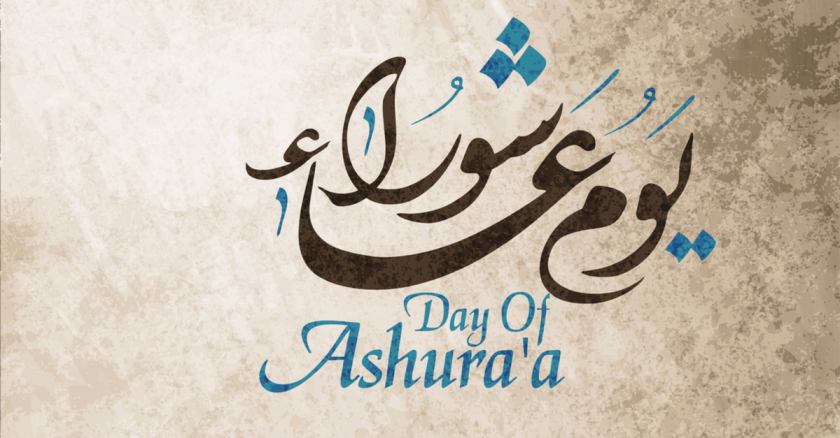Day of Ashura: Virtues of 10th Muharram
Table of Contents
ToggleThe 10th of Muharram, known as the Day of Ashura, is very important in Islam. On this day, Allah (SWT) saved Prophet Musa (RA) and his people from the Pharaoh’s evil. It’s also when Prophet Nuh’s (RA) ship settled on Mount Judi after the flood.
The Prophet Muhammad (peace be upon him) fasted on Ashura and encouraged others to do the same. He said fasting this day forgives sins from the year before. So, fasting on Ashura in Muharram is a highly praised act.
Key Takeaways
- The 10th of Muharram, known as the Day of Ashura, is one of the holiest days in Islam.
- Fasting on the Day of Ashura is associated with the miraculous events in Islamic history, such as the saving of Prophet Musa (RA) and his followers from Pharaoh’s army.
- Prophet Muhammad (PBUH) placed great emphasis on fasting on the Day of Ashura, linking it to the forgiveness of sins.
- Spending generously on family on the 10th of Muharram is believed to bring blessings for the entire upcoming year.
- Fasting on the 10th of Muharram is considered one of the best fasts after Ramadan according to Prophet Muhammad (PBUH) and Abu Hurairah (RA).
What is Day of Ashura: Virtues of 10th Muharram Ashura
The 10th of Muharram is called the Day of Ashura in Islam. This day is known for two important events. First, it’s when Prophet Musa (RA) and his followers escaped the Pharaoh. Then, it’s when Prophet Nuh’s (RA) ark found safety on Mount Judi.
The Prophet Muhammad (peace be upon him) taught that fasting on this day erases sins. This lesson is essential to many Muslims around the world.
1- Understanding the Significance of Ashura
It’s the 10th day of Muharram, the start of the Islamic year. Many Muslims observe it worldwide. It’s remembered for the rescue of Prophet Musa (RA) and his people from the Pharaoh. Also, for when Prophet Nuh’s (RA) ark landed safely on Mount Judi.
The Prophet Muhammad (peace be upon him) fasted on this day. He also taught his followers to do the same. Fasting on Ashura is believed to forgive sins of the past year.
2- History and Importance of the 10th Muharram
The 10th day of Muharram has deep historical roots in Islam. It marks the day of many significant events. For instance, the martyrdom of Hadrat Husayn (RA) and the liberation of Prophet Musa (RA) and the Israelites from the Pharaoh.
The Prophet Muhammad (peace be upon him) set an example by fasting on this day. He recommended his followers to do so. It’s thought that fasting on Ashura can forgive sins from the year before.
It’s a tradition to pray a special prayer on the 9th and 10th nights of Muharram. This prayer involves reciting Surah al-Ikhlas 50 times after Surah al-Fatihah. Fasting on the 10th day, Ashura, is a good practice. It’s also recommended to fast on the 9th or 11th with it.
It’s believed that spending Ashura in worship and helping others brings many blessings.
“Fasting on the Day of Ashura, I hope, will atone for the sins of the previous year.” – Prophet Muhammad (peace be upon him)
The Day of Ashura is not just meaningful for Muslims. People of various beliefs also honor its history. It’s a time to reflect on events that have impacted many lives.
Muharram: The Sacred Month of Allah
Muharram is the first month of the Islamic calendar. It is one of Islam’s four sacred months. It’s known as the “Sacred Month of Allah” for its deep spiritual meaning. Good deeds are more rewarded and sins are taken very seriously. The Prophet Muhammad (peace be upon him) urged people to fast more during Muharram. This month has a special place in Islamic tradition.
Muharram begins the Hijri calendar, starting the new Islamic year. It’s one of the four months loved by Allah, along with Rajab, Dhul-Qa’dah, and Dhul-Hijjah. Muharram is a time for Muslims to seek Allah’s mercy. Good deeds done now bring special rewards.
Fasting in Muharram is very important. The Prophet (peace be upon him) said it’s an especially good time to fast. Fasting on the 10th day, Ashura, can wipe away small sins of the past year.
Muslims also fast on the 9th and 11th of Muharram to be different from other faiths. It shows the unique customs of the Prophet’s followers.
Giving Zakat in Muharram earns big rewards, although not obligatory. Helping an orphan or supporting Zakat-qualified projects is urged in this month.
During Muharram, Muslims aim to do more good acts. Reading the Quran, giving to the needy, and praying more are key. The Prophet highlighted the value of fasting in Muharram.
Muharram’s importance comes from Islamic history. The day when the Israelites were freed from Pharaoh’s tyranny, on the 10th, is celebrated. Fasting on this day, Ashura, can erase past sins. This shows its significance in the Islamic calendar.
In summary, Muharram is a special month for Muslims. It’s a time to grow spiritually, help others, and follow the Prophet’s ways. Its holiness and the Ashura highlight make it a period of deep faith and commitment.
The Day Allah Saved Prophet Musa and the Israelites
The 10th of Muharram, known as the Day of Ashura, is very important in Islamic tradition. This day marks when Allah (SWT) saved Prophet Musa (RA) and the Israelites from Pharaoh.
As the Quran and hadith tell us, Prophet Musa (RA) and the Israelites faced the Pharaoh’s army at the Red Sea. They prayed to Allah (SWT) for help. Allah (SWT) then instructed Prophet Musa (RA) to strike the sea with his staff. This action caused the sea to split, saving the Israelites while the Pharaoh and his army perished.
On the Day of Ashura, Muslims fast. This fast is very significant spiritually, second only to fasting in Ramadan.
“And We divided the sea for the Children of Israel, and Pharaoh and his soldiers pursued them in aggression and enmity until, when drowning overtook him, he said, ‘I believe that there is no deity except that in whom the Children of Israel believe, and I am of the Muslims.'” (Quran 10:90)
The event where Allah (SWT) saved Prophet Musa (RA) and his people illustrates Allah’s power and mercy. It reminds us of the significance of faith, endurance, and how Allah protects us.
By fasting on the Day of Ashura, Muslims not only honor this great event but also seek Allah’s forgiveness and spiritual growth. This day connects Muslims to their faith and the teachings of the prophets.
Prophet Noah’s Ark and the Day of Ashura
The 10th of Muharam is known as the Day of Ashura in Islam. This day notes when Prophet Nuh’s (Noah’s) ark landed on Mount Judi post the global flood. The flood was triggered by a command from Allah to Nuh (RA) to build an ark. It had to protect his family and pairs of every animal species.
Eventually, the waters of the flood went away. The ark settled on Mount Judi on the 10th of Muharam. This ended the tremendous journey. Muslims fast on the Day of Ashura to show thanks, just as Prophet Nuh (RA) and his team did.
“And it was said, ‘O earth, swallow your water, and O sky, withhold [your rain].’ And the water subsided, and the matter was accomplished, and the ship came to rest on [Mount] Judi. And it was said, ‘Away with the wrongdoing people!'” (Quran 11:44)
This day is also when Prophet Musa (Moses) and the Israelites escaped Pharaoh’s soldiers by crossing the Red Sea. To remember this, Muslims also observe the Day of Ashura.
Both these major events happening on the same day highlights its real spiritual and historical meaning in Islam. On this day, Muslims remember Allah’s favors. They also imitate how the Prophets showed faith and faced difficult times.
Fasting on the Day of Ashura
The Islamic tradition values the Day of Ashura, the 10th of Muharram. Fasting on this day is seen as a noble deed. This practice follows the example of Prophet Muhammad (peace be upon him).
1- The Virtues of Observing the Fast
Fasting on the Day of Ashura holds great significance, next to Ramadan. The Prophet Muhammad (pbuh) praised this fast and urged others to join. He said it can forgive sins from the past year.
The Prophet preferred fasting on Ashura over other optional fasts. This was noted by Ibn Abbas (may Allah be pleased with him). It shows the day’s importance.
2- Expiation of Sins Through Fasting
Fasting on Ashura can wipe clean sins from the previous year. It allows Muslims a fresh start. This day is key for asking forgiveness and purifying the soul.
Fasting on Ashura is a recommended act (sunnah), not a must-do (wajib). Still, the Prophet Muhammad (pbuh) kept this practice up. Its value in Islam is thus highlighted.
Not only does fasting on Ashura forgive sins, it has a historic win too. The Prophet Musa (pbuh) escaped Pharaoh on this day. This adds to the honor of observing this fast.
The Prophet’s Practice of Fasting on Ashura
The Prophet Muhammad encouraged fasting on Ashura a lot. He was very keen on fasting this day. And he gave it more importance than any other day. This shows how much Ashura mattered to the Prophet.
Even before he became a prophet, he fasted on Ashura. He followed the practices of the prophet before him, Ibrahim (RA). Fasting on Ashura marked the start of making fasting a part of Islam.
“The Messenger of Allah (saw) was never so keen to fast any day and give it priority over any other than the day of Ashura.”
Later, fasting on Ashura became not a must, but a good thing to do. This change happened when fasting in Ramadan became obligatory. Still, the Prophet put a lot of value on fasting on Ashura and in Ramadan.
Fasting on Ashura was thought to forgive sins of the past year. The Prophet talked about this in his teachings. He showed just how important fasting on Ashura was spiritually.
The Prophet Muhammad also recommended fasting on the 9th and 10th of Muharram. Or on the 10th and 11th. He wanted us to celebrate these days. His advice has become a special tradition for Muslims everywhere.
Fasting the 9th and 10th of Muharram
The Prophet Muhammad (peace be upon him) encouraged fasting on the 10th of Muharram, known as the Day of Ashura. He also said it’s good to fast on the 9th. By fasting on these days, Muslims show their faith in a unique way.
The Prophet (peace be upon him) wished to fast on both the 9th and 10th days if he lived. Even though he couldn’t, his followers continue this tradition. It’s a way to remember his teaching and show their devotion.
In Islam, fasting on Ashura is seen as very special. Muslims believe it helps cleanse their past sins. The Prophet himself fasted on this day and advised others to do so. He then suggested adding the 9th day to it, making it a two-day fast.
A hadith by Abu Hurairah tells us the Prophet ranked fasting in Muharram just after Ramadan. Despite some differences among scholars, they agree that fasting on Ashura has great benefits. It’s a practice highly valued in Islam.
| Reason for Fasting 9th and 10th of Muharram | Virtues and Significance |
|---|---|
| To differentiate from the Jewish fast | Fasting on Ashura erases past year’s sins |
| Following the Prophet’s tradition and recommendation | Fasting in Muharram is the best after Ramadan |
| Commemorating the deliverance of Prophet Musa and Israelites | Fasting on Ashura has significant virtue according to the Prophet |
Fasting on the 9th and 10th of Muharram is a practice Muslims deeply value. It helps them draw closer to Allah and forgive their sins. Also, it sets them apart as true followers of the Prophet Muhammad (peace be upon him).
Quranic Verses and Hadith on Muharram
In the Quran and Hadith, the month of Muharram and the Day of Ashura hold special significance. Allah calls Muharram one of the four sacred months. He also warns against doing wrong in this time. The Prophet Muhammad praised fasting during Muharram. He said it’s the best time to fast after Ramadan.
* Prophetic Traditions Highlighting the Importance
The Prophet Muhammad showed a great interest in fasting on the Day of Ashura. He encouraged this practice. According to Hadith, fasting in Muharram is very special, especially after Ramadan.
The Prophet Muhammad also fasted a lot in Sha’ban. He learned the importance of al-Muharram later in his life. This shows the excellence of certain times, like Ramadan, over others for fasting.
| Significance of Muharram | Hadith and Quran References |
|---|---|
| Al-Muharram is the first month of the Hijri year and is one of four sacred months. | It is called “the month of Allah (shahr Allah)” in the Quran, showing its high significance (Surah At-Taubah: 9:36). |
| Fasting on Ashura is a confirmed Sunnah of the Prophet Muhammad (S.A.W.) and can lead to forgiveness of sins. | This is found in the Hadith (Ibn Majah: 1738). |
| The Prophet liked to fast on the 9th and 10th or 10th and 11th of Muharram. This shows these days are special for fasting. | The encouragement is shown in a Sahih Hadith (Muslim: 1162). |
Fasting on Ashura is tied to important events like the freeing of slaves by Prophet Musa and Imam Hussain’s martyrdom. It offers a chance for spiritual cleanliness. Believers fast in hopes of Allah forgiving past year’s small sins.
Some believe that Prophet Adam was created on Ashura, but this isn’t verified in authentic Hadith. In 2023, the Day of Ashura is likely on the 28th or 29th of July. Fasting on Ashura is a choice, unlike Ramadan when it’s a must.
Conclusion
The Day of Ashura on the 10th of Muharram is crucial in Islam. It marks the saving of Prophet Musa (RA) and the Israelites from the Pharaoh. During this time, Prophet Nuh’s (RA) ark also reached Mount Judi. Prophet Muhammad (peace be upon him) kept this day special by fasting and asked others to do so. He believed it removed sins from the year before.
On Ashura, fasting and helping others are good practices. They can bless and forgive. The benefits of Ashura and the month of Muharram are noted in the Quran and Hadith. This makes the day a special one for Muslims everywhere.
The discussion on the Day of Ashura and the 10th of Muharram is ending. We see how important it is to Muslims. By following the customs of this day, we can get closer to our faith, seek forgiveness, and try to improve ourselves.

FAQ
What is the significance of the Day of Ashura?
The Day of Ashura, on the 10th of Muharram, is very important in Islam. On this day, believers remember how Allah (SWT) saved Prophet Musa (RA) and his people from the Pharaoh’s cruelty. It’s also a day when Prophet Nuh’s (RA) ark landed safely on Mount Judi after the flood.
Why is fasting on Ashura considered a virtuous act?
Observing a fast on Ashura is special in the Islamic year. The Prophet Muhammad (peace be upon him) fasted on this day. He said it helps wipe away the year’s sins. This inspired his followers to fast too.
What is the significance of the month of Muharram?
Muharram is the Islamic year’s first month and greatly respected. It’s known as a “Sacred Month of Allah.” Good actions are more rewarded in this time.
How did Allah (SWT) save Prophet Musa (RA) and the Israelites from the Pharaoh?
Prophet Musa (RA) and his people were trapped by the Pharaoh’s army near the Red Sea. They called to Allah (SWT) for help. Allah (SWT) ordered Prophet Musa (RA) to strike the sea with his staff. Amazingly, it split, letting the Israelites cross safely. The Pharaoh’s army drowned.
What is the significance of Prophet Nuh’s (RA) ark on the Day of Ashura?
On Ashura, Prophet Nuh’s (RA) ark settled on Mount Judi after the flood. He was told by Allah (SWT) to build an ark to save his family and animals while a great flood covered the world.
What are the virtues of fasting on the Day of Ashura?
Fasting on Ashura is honored in Islam because it cleans from sins of a year. The Prophet Muhammad (peace be upon him) kept this fast. He highlighted it as one of the best after Ramadan, encouraging his followers to do so too.
How did the Prophet Muhammad (peace be upon him) prioritize fasting on the Day of Ashura?
The Prophet Muhammad (peace be upon him) deeply valued fasting on Ashura. He recommended it highly. It was being observed even before his prophethood, following Prophet Ibrahim’s (RA) way.
What other practices are recommended on the Day of Ashura?
Beyond fasting on Ashura, Muslims are urged to do acts of kindness and charity. The Prophet Muhammad (peace be upon him) said whoever spends on their family generously on Ashura, Allah will be kind to them throughout the year.
Why did the Prophet Muhammad (peace be upon him) recommend fasting on the 9th and 10th of Muharram?
The Prophet Muhammad (peace be upon him) advised fasting on the 9th and 10th of Muharram. This was to differ from Jewish fasting. It’s a wonderful practice for Muslims to observe.
What is the evidence for the significance of Muharram and the Day of Ashura in the Quran and Hadith?
The Quran and Hadith mention Muharram and Ashura’s importance. Allah (SWT) calls Muharram a Sacred Month. The Prophet Muhammad (peace be upon him) praised fasting in Muharram greatly, praising it as second only to Ramadan.






